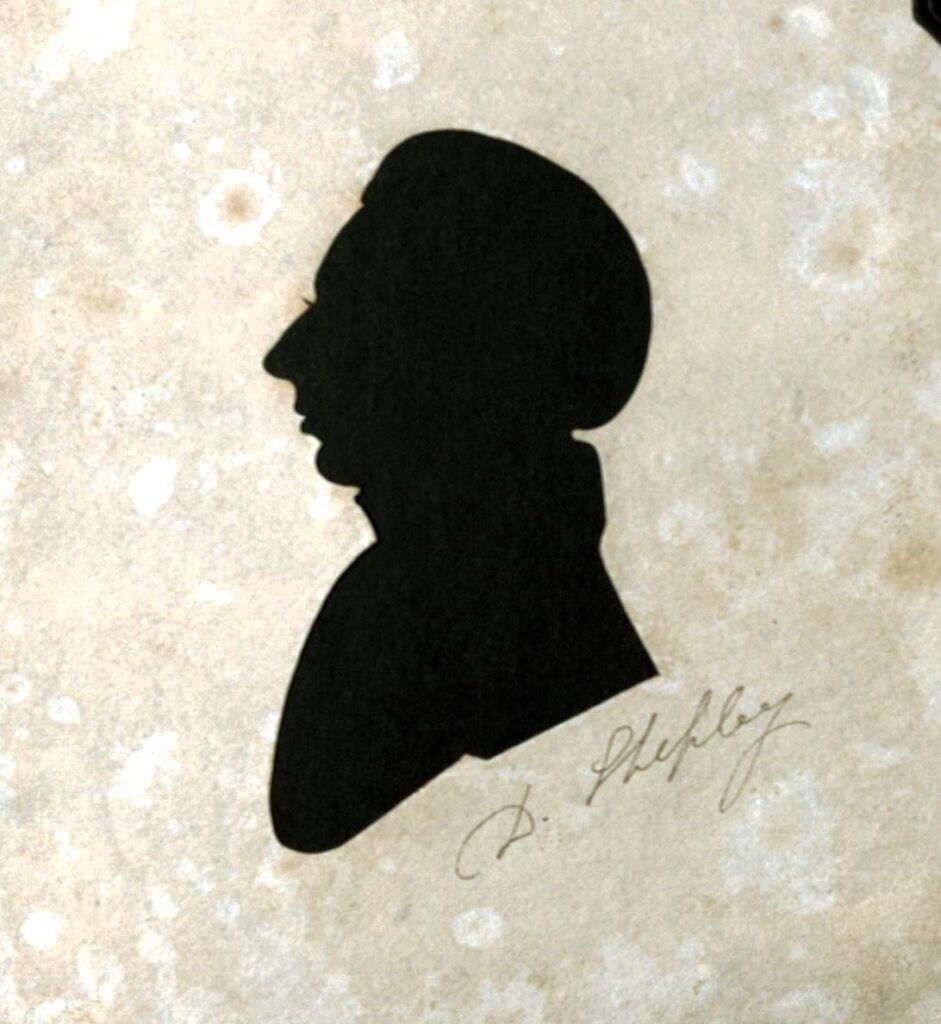
The Original Thinker
David Shepley was born on June 1, 1804, in Solon, Maine, to Daniel and Eunice (Blood) Shepley. Following his father’s premature death, young David lived in Norridgewock with Rev. Josiah Peet. He prepared for Bowdoin at Thornton Academy, where he met George Washington Pierce, his future college classmate. The two would become best friends and chums (roommates) at Bowdoin for all four years.
Shepley spent his first year in Brunswick living at Captain R. Toppan’s with Pierce, Horatio Bridge, and Cullen Sawtelle. Like Pierce, Shepley joined the Peucinian Society. Sophomore year the pair boarded at Mrs. Greenleaf’s with Josiah Stover Little. The men went to Mrs. Adam’s their junior year before finally moving on campus to Maine Hall their senior year.
Shepley possessed “rare mental endowments,” and was well regarded for his original mind and balanced, thoughtful consideration of topics. He was inducted into Phi Beta Kappa. At commencement he participated in a forensic disputation with Alden Boynton entitled, “Whether the Safety of our Government is endangered by the Extent of Territory?” Shepley and Boynton both graduated sixth in their class.
After Bowdoin, Shepley studied at Andover Theological Seminary and became a clergyman, first in North Yarmouth (1829-1849), then Winslow (1851-1862). He was for several years an overseer of the college, and for ten years on its Board of Trustees. In 1868 the college honored him with the degree of Doctor of Divinity. Following his retirement from the ministry, Shepley relocated to Providence, Rhode Island, where he died on December 1, 1881.